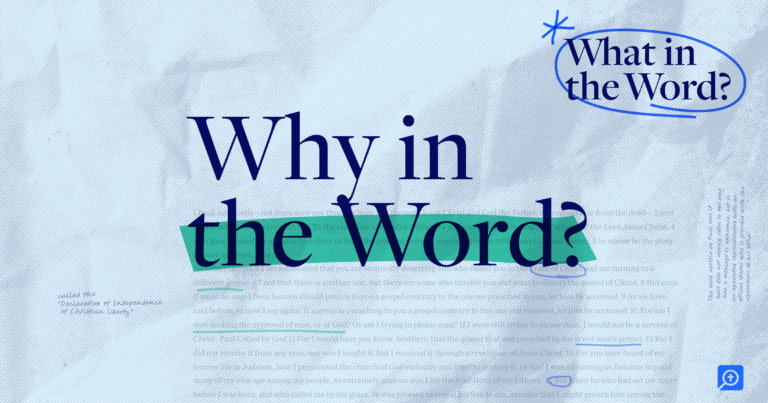
As humans living in a fallen world, we are all deeply flawed and inherently sinful. Because of our tendency to deviate from God’s original intention for us, all institutions, including the church, are far from perfect and prone to missteps. These missteps could involve everyday interactions in which personalities clash or when differences of opinion result in conflict, hurt feelings, or anger. These experiences occur in any family, church, or organization. We all have different opinions, perspectives, and experiences that have shaped our lives and play into our interactions.
It’s likely that we have been on both the giving and receiving sides of hurt in such cases. Because we’re all human, it’s possible that we have failed to respond to another person in his or her time of need, leaving them to feel abandoned. In other cases, we may be uninformed about another person’s experience and make insensitive or inappropriate remarks. Gossip can run rampant through a church to devastating effect, leaving individuals isolated and alone when they need the support of their church family the most.
Church hurt occurs on a spectrum from minor everyday offenses to spiritual abuse. Along this spectrum, we also have accidental (or unintentional) hurt, where someone made a mistake or was unaware of the implications of his or her actions. Then there’s intentional hurt, where a person knew his or her actions were wrong and chose to inflict harm anyway, acting against their own better judgment.
The church should be a place where we can go and know we are safe, loved, and protected. However, because of the fallen world in which we live, this is not always the case.
Let’s take a look at five things Scripture says about church hurt.
1. God sees & hears
Whether we have been hurt by everyday offenses or by deeper levels of betrayal, God sees our hurt and hears our cries. He stands ready to redeem any situation.
As much as we would like for others to do their part to make things right with us, it’s ultimately up to God to deal with each individual person. We may be justified in thinking that we are owed an apology or that the offender should acknowledge the pain they have caused. But unfortunately, they may never seek our forgiveness or even be aware of our hurt. But even when they are unaware of (or apathetic to) our plight, God sees and understands the depth of our wounds.
In Exodus 3, God heard the cries of his people who were enslaved in Egypt and he set out to deliver them
Then the Lord said, “I have observed the misery of my people in Egypt, and have heard them crying out because of their oppressors. I know about their sufferings.” (Exod 3:7; see also 2:23–25; 3:7, 9–10, 16–17)

Use Logos’s Smart Search in Bible to locate verses on a given topic.
There were many times along the journey when the Israelites felt as though God had forgotten them, or they questioned his plan for deliverance. But God was steadfast the entire time. He continued to see their pain and hear their cries and continued to work out their deliverance from Pharaoh. And he continues to do the same for us today.
2. God understands betrayal
Jesus spent three years investing deeply in his twelve disciples. They shared a close relationship. And yet, in Luke 22, he caught them sleeping after he asked them to wait and pray while he went off on his own to pray (Luke 22:39–46). Jesus knew what was to come for him, and he needed the support from those closest to him. But they were not paying attention.
This was not the only time Jesus experienced betrayal by those closest to him. Later, in Luke 22:47–48, Judas, another of the twelve, betrayed Jesus by handing him over to the Sanhedrin. Then, in verses 54–62, Peter, one of the disciples, denied ever knowing him.
These moments characterized Jesus’s experience leading up to the darkest moment in his life when he would take on the sins of all humanity. If there were ever a time when he needed his closest companions, this was it.
When we are hurt by those closest to us—the ones we should have been able to trust—God truly understands, because he has been there.
When we come to being hurt by those closest to us, God truly understands because he has been there.
3. God’s love never fails
Being hurt by the people of God cuts especially deep because they are the ones who are supposed to act as our family. Hurt caused by the church can leave us feeling rejected and unloved.
But in Lamentations 3:22–23, we find that “the steadfast love of the Lord never ceases; his mercies never come to an end; they are new every morning; great is your faithfulness.” Although the love of others may come and go, God’s love endures.

4. God calls us to forgive—for our own good
Sometimes we don’t want to forgive because we believe that forgiving will imply that what was done to us was alright. Or we feel it will dismiss the hurt that we’ve experienced. On the contrary, to forgive someone assumes that the offender has done something wrong.
Refusing to forgive only hurts us. Withholding forgiveness ensures that we continue to carry the hurt, possibly harboring resentment and allowing bitterness to grow.
Let all bitterness and wrath and anger and clamor and slander be put away from you, along with all malice. Be kind to one another, tenderhearted, forgiving one another, as God in Christ forgave you. (Eph 4:31–32)
Unforgiveness eats away at us, consuming our thoughts—even impacting us physically. While the person who hurt us could very well be carrying on with their lives without giving much thought to the harm they have caused, forgiveness allows us to have closure from past hurt and move forward with compassion.
5. God is compassionate & patient with us
God is tenderhearted and patient with us in our hurt.
So as you work towards forgiveness, take your time. Go slowly, making sure to process through the hurt. Taking the time to process the hurt we have experienced can help us to understand at a deeper level what we are forgiving.
If we rush the forgiveness process, we may potentially prolong our healing. When we rush through forgiveness without working through the extent of our hurt, we may not fully realize the implications the other person’s actions had on us until more time has passed. Then, we find hurt, anger, and bitterness wash over us with fresh intensity.
To be clear, forgiveness does not mean that an offense no longer causes harm or pain. Forgiveness does not mean that we will never think about the situation again. Rather, forgiveness means that we put aside bitterness and malice and that we extend to others the same grace and mercy Christ has extended to us (Col 3:13).
Forgiveness allows for us to work through those moments when we are reminded of the hurt without lingering there too long. Forgiveness acknowledges the pain that has been caused, and that we have taken this hurt before the throne of God. We also have the opportunity to seek God’s guidance and care again, if needed.
Conclusion
If you are in a place where you have experienced hurt by someone in the church, rest assured that God understands and hears your cries. His mercy and compassion never fail. He wants you to experience the healing of forgiveness. And he is patient towards you.
Matthew 11:28 says that God will give us rest if we come to him. What action could you take to come to him? He stands ready to heal.
Related articles
- Recovering from Spiritual Abuse: A Practical Pathway Toward Healing
- On Spiritual Abuse | Michael Kruger
- When Going to Church Is Tough: 5 Tips
- Reconciliation in the Bible: How to Heal Broken Relationships
- What Is Spiritual Authority? Neither Authoritarianism nor Anti-Institutionalism
Resources on church hurt for continued study
Counseling through the Storm: A Guide to Treating Crisis and Trauma
Save $0.88 (5%)
Price: $16.71
-->Regular price: $17.59
Understanding and Assessing Spiritual Abuse (2 vols.)
Save $1.25 (5%)
Price: $23.74
-->Regular price: $24.99
Spiritual Abuse Recovery Workbook: Engaging Faith in Healing
Save $0.49 (5%)
Price: $9.25
-->Regular price: $9.74
Sighing on Sunday: 40 Meditations for When Church Hurts
Save $0.70 (5%)
Price: $13.29
-->Regular price: $13.99
What If I’ve Been Hurt by My Church? (Church Questions)
Save $0.20 (5%)
Price: $3.79
-->Regular price: $3.99
Forgive: Why Should I and How Can I?
Save $0.70 (5%)
Price: $13.29
-->Regular price: $13.99
Unpacking Forgiveness: Biblical Answers for Complex Questions and Deep Wounds
Save $0.75 (5%)
Price: $14.24
-->Regular price: $14.99
Healing Your Church Hurt: What To Do When You Still Love God But Have Been Wounded by His People
Save $0.48 (5%)
Price: $9.11
-->Regular price: $9.59
Hope after Church Hurt: How to Heal, Reengage, and Rediscover God’s Heart for You
Save $0.57 (5%)
Price: $10.82
-->Regular price: $11.39
Renewed: A 40-Day Devotional for Healing from Church Hurt and for Loving Well in Ministry
Price: $8.99
-->Regular price: $8.99
Wounded in the Church: Hope Beyond the Pain
Save $0.51 (5%)
Price: $9.68
-->Regular price: $10.19

 13 hours ago
2
13 hours ago
2










 English (US) ·
English (US) ·